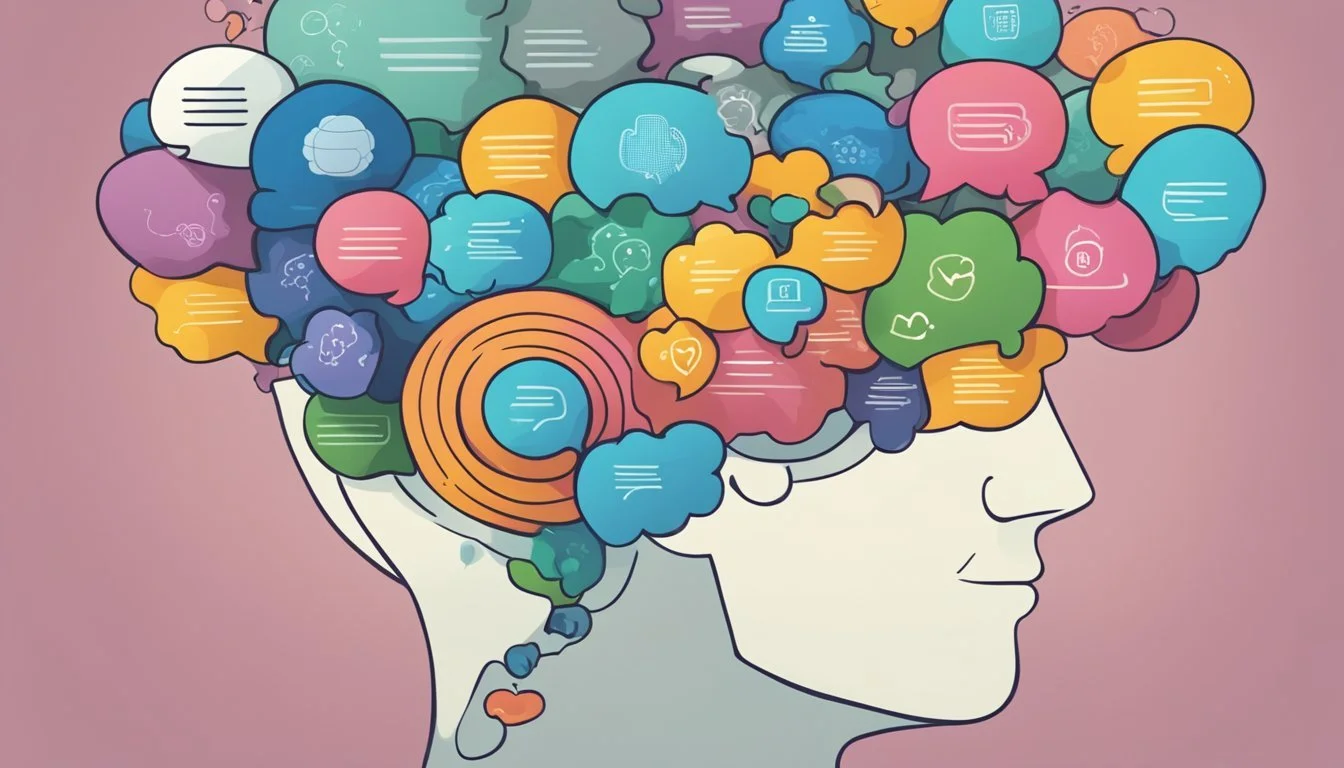Intelligence
Intelligence is a highly discussed topic in psychology, yet there is no widely accepted definition. Some researchers propose intelligence as a singular, overarching ability, while other theories suggest that it encompasses diverse aptitudes, skills, and talents.
Intelligence is an interesting and complex topic in the field of psychology. It has been studied, investigated, and debated upon for years, yet there is still no internationally accepted definition of intelligence. Psychologists are still exploring all the facets and perspectives of intelligence, which makes it an exciting field to delve into. In this section we will explore the different views of intelligence proposed by psychologists. Exploring the argument that intelligence is a singular ability and the opposing view that it encompasses a diverse collection of aptitudes, skills, and talents.
Theories of intelligence
The first view of intelligence is that it is a singular ability that represents an individual's capacity to learn, understand, and perform tasks, which involve cognitive processes like reasoning, problem-solving and decision-making. This is the traditional and commonly accepted view of intelligence. Psychologists, like Charles Spearman, look at intelligence as a singular, overarching ability, which they termed as the "g-factor" or general intelligence. The Psychologist, Spearman used a statistical method called factor analysis to support his conclusion that intelligence is, in fact, an underlying general ability that could be measured by a battery of cognitive tests. He believes that the g-factor contributes to individual's performance in a broad range of intellectual tasks and activities.
Different forms of intelligence
On the other hand, the second view of intelligence is more encompassing; proponents of this view believe that intelligence comprises a collection of numerous aptitudes, skills, and talents that vary from person to person. Psychologists, like Howard Gardner, believe that intelligence can be divided into separate, multiple abilities, each independent of the other.
Gardner suggests that there are nine different forms of intelligences: logical-mathematical, linguistic, musical, spatial, bodily kinesthetic, interpersonal, intrapersonal, naturalistic, and existential. This view of intelligence has gained traction, and many psychological tests now include a broader range of aptitudes and abilities.
Measuring intelligence
To measure intelligence, psychologists developed tests that assess one’s cognitive abilities. The most well-known intelligence test is the IQ test, which measures a person’s ability to reason, solve problems, and think abstractly. The score on an IQ test is standardized, which means that it is compared to the scores of other people who have taken the same test. An IQ score of 100 is considered average, with scores above that indicating above-average intelligence and scores below that indicating below-average intelligence.
While IQ tests are the most common way to measure intelligence, they are not without their criticisms. Critics argue that IQ tests are culturally biased and that they do not fully capture the complexity of intelligence. Some researchers have developed alternative intelligence tests that focus on different cognitive abilities, such as creativity, emotional intelligence, and spatial intelligence.
Factors that contribute to one’s intelligence include genetics, environment, and lifestyle. Studies have found that intelligence has a heritability rate of around 50%, which means that around half of one’s intelligence can be attributed to genetics. However, environmental factors such as education, parenting, and nutrition can also play a significant role in one’s intelligence. Lifestyle factors such as physical activity and mental stimulation have also been linked to higher intelligence.
A comprehensive view
Another way psychology has looked at intelligence is through cultural lenses. In many cultures, intelligence doesn't just involve cognitive abilities, but other aspects of life experience and capabilities like social competence, emotional intelligence, and practical intelligence. Psychologists like Robert Sternberg emphasize that intelligence should be viewed comprehensively, involving cultural, social, and practical factors, alongside cognitive ones.
Intelligence - an abstract concept
Despite these different perspectives on intelligence, what comes out clear is that intelligence is an abstract concept that is difficult to define. It varies from person to person and the way it is measured or conceptualized is dependent on the context in which it is being studied. While intelligence has traditionally been defined as cognitive abilities, alternative views have emerged that embrace a more diverse range of capabilities.
Conclusion
Intelligence is a fascinating area of psychology that has seen tremendous research and debate over the years. From the singular-g factor concept to the broader spectrum of multiple intelligences and cultural perspectives of intelligence, the field has grown with new ideas and approaches. The differing views remind us that human intelligence is not a fixed notion or IQ score but is an intricate, diverse, and varied concept that encompasses so much of what makes us human.
Ultimately, intelligence is defined by one's life experiences, natural capabilities, social functioning, and practical problem-solving abilities. Understanding intelligence from multiple perspectives can give us a broader, richer view of what human intelligence entails.
7 Intelligence Boosting Foods Backed by Science
Enhance your cognitive function naturally. Discover 7 intelligence-boosting foods backed by science, and learn how these nutrient-rich options can improve memory, focus, and overall brain health.
11 Signs Your High Intelligence Is Causing You Anxiety
Recognize the hidden costs of brilliance. Discover 11 signs your high intelligence is causing you anxiety, and learn strategies to manage stress and maintain mental well-being.
5 Unexpected Benefits of Average Intelligence
Discover the advantages of being average. Explore 5 unexpected benefits of average intelligence, highlighting how it can lead to a balanced, fulfilling, and successful life.
5 Key Differences Between IQ and EQ
Understand the distinct aspects of intelligence. Explore the 5 key differences between IQ and EQ, and learn how both intellectual and emotional intelligence contribute to personal and professional success.
15 Habits of People with Both High IQ and High EQ
Achieve a balanced brilliance. Discover 15 habits of people with both high IQ and high EQ, offering insights into how they excel intellectually and emotionally to lead successful, fulfilling lives.
7 Unique Challenges Intelligent People Face in Relationships
Navigate love with wisdom. Discover 7 unique challenges intelligent people face in relationships, and learn strategies to overcome these obstacles for deeper, more fulfilling connections.
14 Habits That Can Diminish Your Emotional Intelligence
Protect your emotional well-being. Discover 14 habits that can diminish your emotional intelligence, and learn how to avoid these pitfalls to maintain healthy relationships and self-awareness.
6 Surprising Facts About Intelligence and Genetics
Uncover the genetic influences on intellect. Discover 6 surprising facts about intelligence and genetics, exploring the intricate relationship between your DNA and cognitive abilities.
8 Unexpected Downsides of Being Highly Emotionally Intelligent
Explore the hidden challenges. Discover 8 unexpected downsides of being highly emotionally intelligent, and learn how to navigate these complexities while maintaining your emotional well-being.
10 Ways to Leverage Your Intelligence for Personal Growth
Unlock your full potential. Discover 10 ways to leverage your intelligence for personal growth, offering practical tips to enhance your skills, expand your knowledge, and achieve your goals.
11 Signs You're More Emotionally Intelligent Than You Think
Recognize your emotional strengths. Discover 11 signs that you're more emotionally intelligent than you think, highlighting traits that showcase your emotional awareness and interpersonal skills.
6 Strategies for Developing Multiple Intelligences
Unlock your full intellectual potential. Discover 6 effective strategies for developing multiple intelligences, enhancing your cognitive abilities and fostering a well-rounded skill set.
12 Ways Intelligent People Sabotage Their Own Success
Avoid common pitfalls of high intellect. Discover 12 ways intelligent people sabotage their own success, and learn strategies to overcome these challenges and achieve your full potential.
15 Questions Emotionally Intelligent People Ask Themselves Daily
Cultivate self-awareness and growth. Discover 15 questions emotionally intelligent people ask themselves daily, helping you enhance your emotional intelligence and improve your relationships and decision-making.
9 Common Misconceptions About Emotional Intelligence
Separate fact from fiction. Discover 9 common misconceptions about emotional intelligence, and gain a clearer understanding of its true impact on personal and professional success.
7 Surprising Correlations Between Intelligence and Mental Health
Explore the intriguing links between intellect and well-being. Discover 7 surprising correlations between intelligence and mental health, shedding light on how cognitive abilities can influence emotional resilience and psychological challenges.
10 Techniques to Enhance Your Emotional Self-Awareness
Deepen your understanding of your emotions. Discover 10 techniques to enhance your emotional self-awareness, helping you better manage your feelings, improve relationships, and boost overall well-being.
6 Ways Intelligence Influences Decision-Making
Understand the cognitive impact on choices. Discover 6 ways intelligence influences decision-making, highlighting how intellectual abilities shape your problem-solving, judgment, and strategic thinking.
13 Career Paths Perfect for Emotionally Intelligent People
Leverage your emotional strengths professionally. Explore 13 career paths perfect for emotionally intelligent people, offering opportunities where empathy, communication, and interpersonal skills shine.
8 Unconventional Signs of High Emotional Intelligence
Recognize the subtle indicators of emotional savvy. Discover 8 unconventional signs of high emotional intelligence, revealing unique traits that highlight your emotional awareness and interpersonal skills.




















